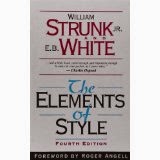(churchleaders.com)
I was reading a book recently and realized I was really bored with it. This sparked me into trying to figure out why I get bored with particular books, and I came to the realization that it all comes down to the plot not having a big enough crisis. The main plot problem in your writing needs to be a life or death situation, or it won't be compelling enough to keep reader's attention. The crisis can't be that your aunt will lose all her inheritance if you don't find a certain locket. It also can't be that your girlfriend kidnapped your dog and you have to get him back. These things won't be compelling unless there is some worry that someone will die because of the problem. I don't know why this is. I just know that whenever I'm bored with a book, it's because the crisis isn't life or death. So next time you're working on the plot of your next big novel....keep that in mind. Give your characters some life or death problems to overcome. Your readers will thank you!















.jpeg)
.jpeg)





.jpeg)